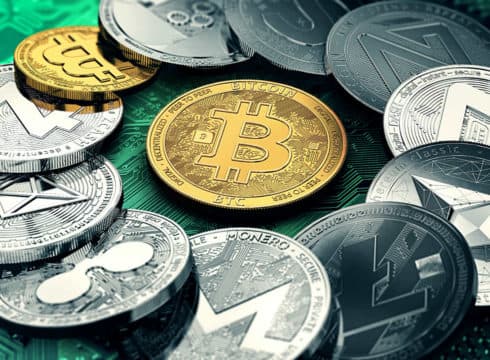SC has also asked the solicitor general to furnish various documents pertaining to the response within a week
Counsel for RBI said its powers can be exercised "whenever there is a threat to the monetary, fiscal and financial policy”
The case has been scheduled for next hearing for September 25
Inc42 Daily Brief
Stay Ahead With Daily News & Analysis on India’s Tech & Startup Economy
The Reserve Bank of India (RBI) has been asked to answer the questions raised by cryptocurrency exchanges within two weeks in the Supreme Court of India.
The direction came under the ongoing case in the Supreme Court over RBI’s restrictions, including barring banks from extending any services to the crypto community. In April 2018, the Reserve Bank of India issued a circular instructing all regulated financial services entities to exit relationships with companies and individuals dealing in virtual currencies and block all such crypto-related transactions.
IAMAI, as well as a dozen other petitioners, moved to Supreme Court seeking a stay on the RBI circular. The case was clubbed with all the petitions related to cryptocurrencies pending at different courts across India and the hearing has been ongoing since then.
Supreme Court Demands “Appropriate” Response
At the time, the crypto exchanges made a representation to the central bank explaining why rules, rather than restrictions, can address the regulator’s concerns over cryptocurrency trade. In line with the representations, Justice Rohinton Fali Nariman on Wednesday directed the RBI to respond in the “manner appropriate” and scheduled its next hearing for September 25.
The court has also asked the solicitor general to furnish various documents pertaining to the response within a week. Shyam Divan, the senior advocate representing RBI said that the central banking institution’s circular on restricting access to banking channels for virtual currency trade is supplementary to the statutory provisions listed under the Banking Regulation Act.
He emphasised that RBI’s powers can be exercised “whenever there is a threat to the monetary, fiscal and financial policy.”
Advocate Ashim Sood, the counsel for the IAMAI, presented suggestions by the exchanges to the RBI such as anti-money laundering and know your customer guidelines to address its concerns. The exchanges had submitted that the Money Laundering Act could be made applicable to exchanges deeming themselves as ‘intermediaries’.
India’s Stand On Cryptocurrency
The Inter-Ministerial Committee led by Subhash Chandra Garg, secretary, Department of Economic Affairs (DEA) had recently submitted its report which recommends a ban on cryptocurrency in India to the finance ministry and the same has now been made public.
The IMC has recommended a complete ban on cryptocurrencies in India either an asset or currency in the country; however, the committee is agnostic about exploring the idea of RBI-backed digital currencies and has welcomed the ongoing innovations happening around the underlying technology, known as blockchain.
As a result of regulatory uncertainty, over the last two years, many leading exchanges such as Koinex, Zebpay, Coinome have had shut down their shops, while others such as Unocoin have had to lay off more than half of its employees.
{{#name}}{{name}}{{/name}}{{^name}}-{{/name}}
{{#description}}{{description}}...{{/description}}{{^description}}-{{/description}}
Note: We at Inc42 take our ethics very seriously. More information about it can be found here.


